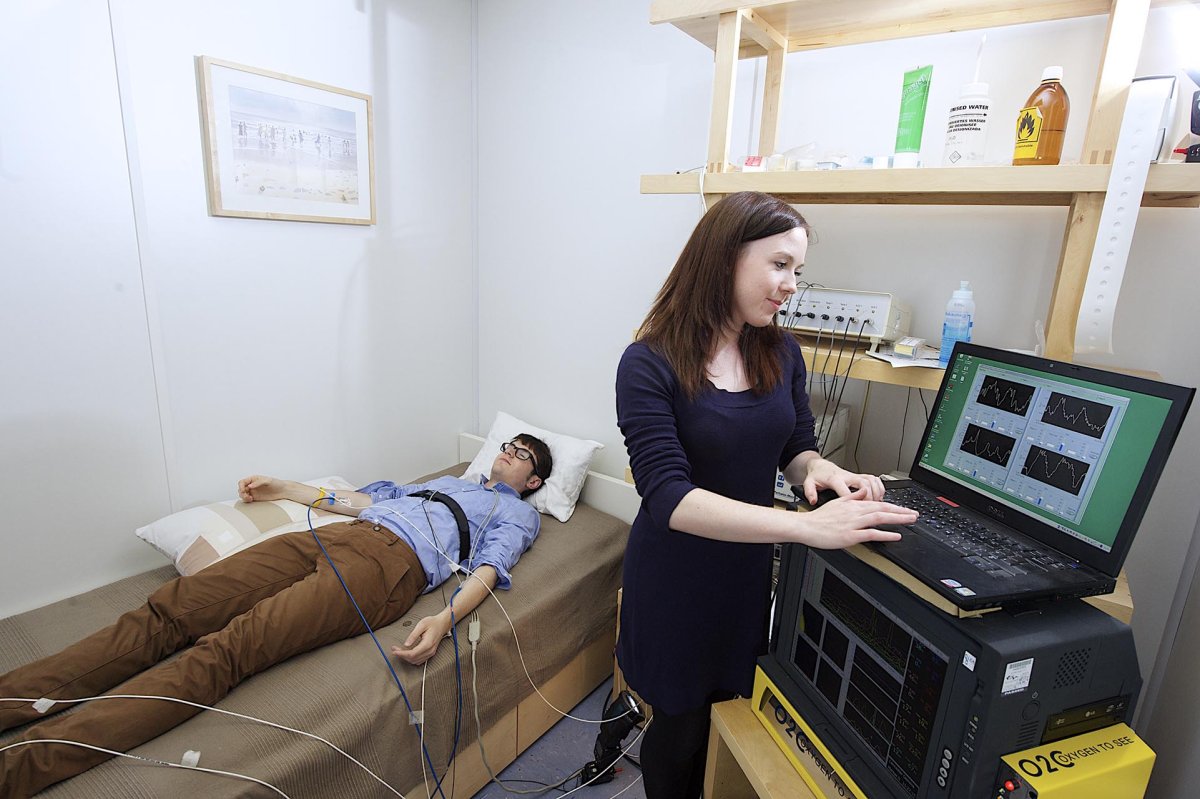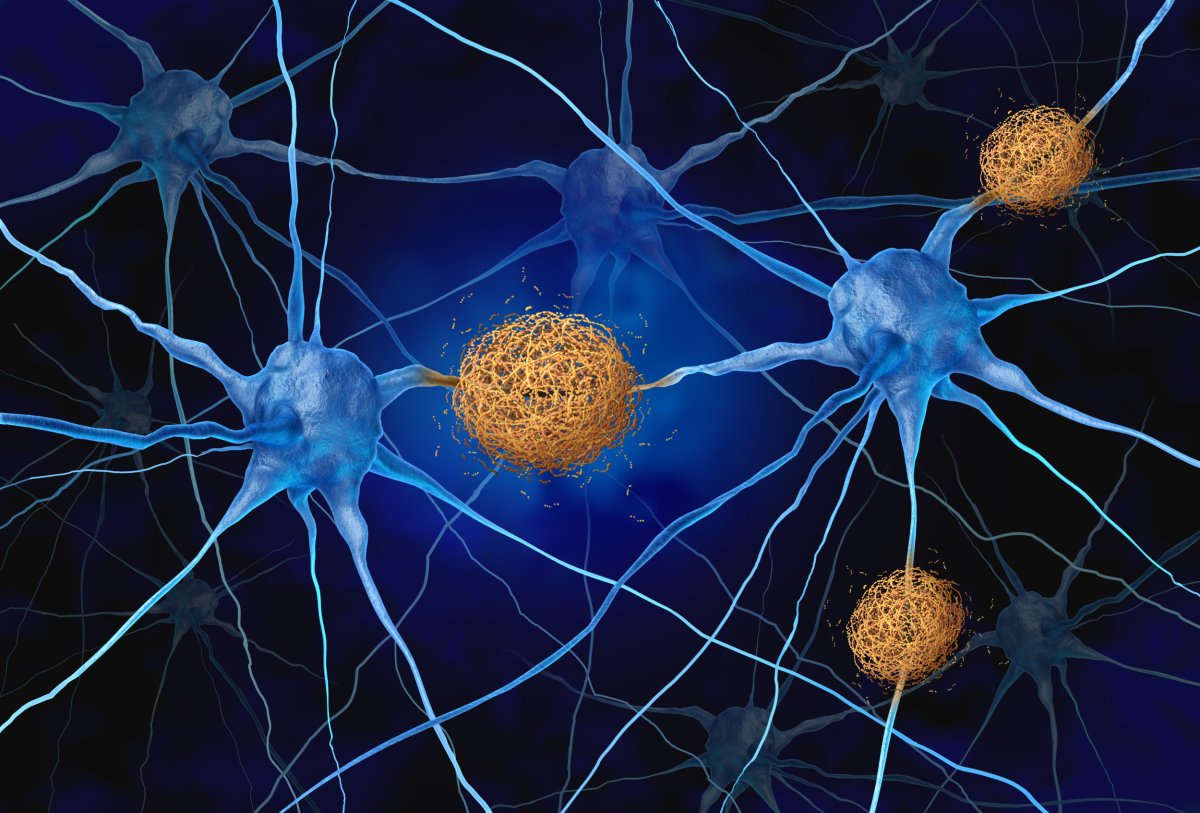A mismatch between blood flow and neuron activity in the brain may underlie the harmful neurodegeneration seen in Alzheimer's disease.
This is the conclusion of an international team of researchers who say that the discrepancy could be exploited as a simple way to diagnose the progressive neurological disorder—and may afford a new target in efforts to treat the disease.
"This is an interesting discovery—in my opinion a revolutionary one—that may open a whole new world in the study of Alzheimer's disease," said paper author and biophysicist professor Aneta Stefanovska of Lancaster University, England in a statement.
"It most likely reflects an inflammation, maybe in the brain, that once detected can probably be treated and severe states of Alzheimer's might be prevented in the future."

In their study, Stefanovska and her colleagues focused on the "neurovascular unit"—a complex structure in the brain that regulates blood flow in order to ensure that neurons receive the nutrients they need.
"The vascular system and the brain work together to ensure that the brain receives sufficient energy," explained the study's clinical coordinator, neurologist Dr. Bernard Meglič of Slovenia's University of Ljubljana, in a statement.
"In fact, the brain needs as much as 20 percent of the body's overall energy consumption despite contributing only about 2 percent of the body's weight."
Alzheimer's disease, Stefanovska explained, "can be hypothesized as being a result of the brain not being appropriately nourished via the blood vessels."
The researchers assessed the function of the neurovascular unit by measuring both blood flow and electrical activity within the brains of 39 subjects—19 of whom had been diagnosed with Alzheimer's disease.
Electrical activity and oxygenation levels were recorded by means of electrical and optical probes attached to the participants' scalps. At the same time, an electrocardiogram (ECG) monitored heart rate, while a belt around each subject's chest recorded breathing patterns.
This suite of instruments allowed the team to capture the test subjects' physiological rhythms—and determine how in time they all were.
As the researchers explain, the synchronization of all these rhythms is essential for the efficient functioning of the brain.

"The first key result is that the coordination between the cardiovascular system and the neuronal activity in the brain, via the neurovascular unit, is dramatically reduced in Alzheimer's disease," Stefanovska told Newsweek.
Quite unexpectedly, Stefanovska added, the team's analysis also revealed that the respiratory frequency at rest is significantly higher in subjects with Alzheimer's.
(Specifically, the median respiration rate was some 13 breaths per minute for the control group, but around 17 breaths per minute for the Alzheimer's group.)
Altogether, the researchers suspect that the differences seen in the Alzheimer's group may be leading to reduced oxygen delivery to the brain, which in turn could be reducing the clearance of harmful amyloid beta protein build ups.
Amyloid beta forms plaques between neurons in the brain that disrupt communication between nerve cells—and has been linked to the development of Alzheimer's disease.

While further research is needed, the findings are likely to develop into practical applications—both in diagnosing Alzheimer's, but also in potentially tackling the underlying causes.
"We show clear results of our approach and how Alzheimer's can be detected simply, noninvasively and inexpensively," concluded Aneta Stefanovska.
"The method has great potential—and we are discussing possibilities to create a spinout or startup company to proceed with it."
With this initial study complete, Stefanovska said, the team are now looking to explore whether the phase coherence of the neurovascular unit vary with different types of dementia, the condition's severity and with sex.
Do you have a tip on a health story that Newsweek should be covering? Do you have a question about Alzheimer's disease? Let us know via science@newsweek.com.
Reference
Bjerkan, J., Meglič, B., Lancaster, G., Kobal, J., McClintock, P. V. E., Crawford, T. J., & Stefanovska, A. (2025). Neurovascular phase coherence is altered in Alzheimer's disease. Brain Communications, 7(1). https://doi.org/10.1093/braincomms/fcaf007
Update 02/04/25, 12:36 p.m. ET: This article was updated with additional comments from Aneta Stefanovska.
Is This Article Trustworthy?
Is This Article Trustworthy?
Newsweek is committed to journalism that is factual and fair
We value your input and encourage you to rate this article.
Newsweek is committed to journalism that is factual and fair
We value your input and encourage you to rate this article.
About the writer
Ian Randall is Newsweek's Deputy Science Editor, based in Royston, U.K. His focus is reporting on science and health. He ... Read more



